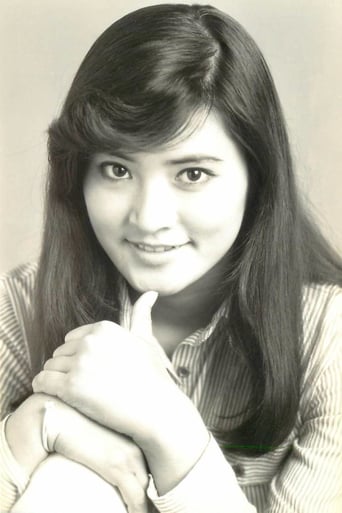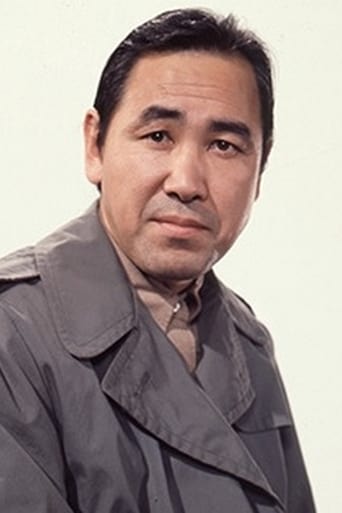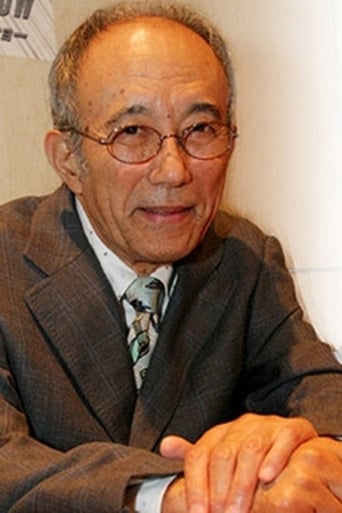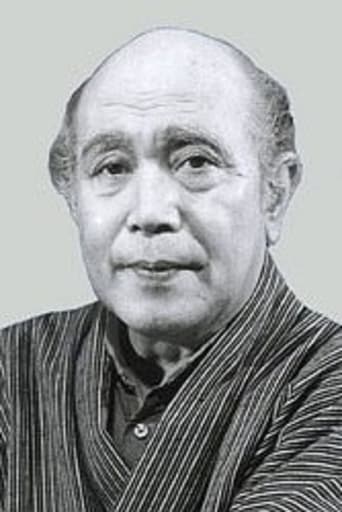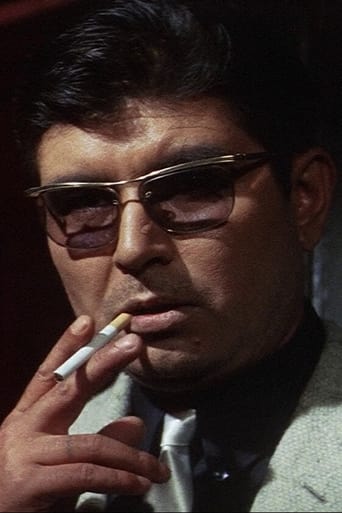Nonureva
Really Surprised!
PlatinumRead
Just so...so bad
Beystiman
It's fun, it's light, [but] it has a hard time when its tries to get heavy.
Erica Derrick
By the time the dramatic fireworks start popping off, each one feels earned.
dee.reid
With its funky 1970s music score and outrageous fighting sequences, 1974's "Sister Street Fighter: Hanging by a Thread," a sequel to "Sister Street Fighter" which had been released earlier that same year, is an interesting if not entirely successful follow-up to the previous film. It is worth noting that the sequel concerns the return of Koryu Lee (Etsuko "Sue" Shihomi), a half-Japanese/half-Chinese Karate powerhouse who travels from Hong Kong to Japan to investigate the disappearance of a wealthy man's young daughter. As she digs deeper into the mystery, she uncovers a deadly diamond smuggling ring and the powerful gangsters behind it. Directed by Kazuhiko Yamaguchi (who also directed the first film), the fights are fast, furious, and bloody - everything a good Karate film from Japan should be. One of the reasons the film works so well is because of the performance and fighting prowess of Etsuko Shihomi. A student of Japanese martial arts sensation Sonny Chiba's action school, Shihomi more than holds her own against the numerous baddies standing against her. She's also very easy on the eyes - yes, she is quite a cutie! But don't let that fool you: she can kill you twice before you knew what hit you. It's interesting to note that some bad guys make the mistake that just because she's a girl, she can't fight, or she's weak, or both. Well, as "Sister Street Fighter" and this film prove, anyone who makes that assumption is sorely mistaken, and you'll wind up on your back on the floor unconscious for making such an arrogant assumption.8/10
unbrokenmetal
Koryu (Etsuko Shihomi) flies from Hong Kong to Tokyo in order to rescue a hostage, but the gangster boss keeping that hostage has many skillful fighters. The summary of "Sister Street Fighter"? No, the summary of its sequel, although that reads exactly the same. The second movie copied the first, while the producers carefully kept everything that probably was responsible for its success. A few tiny differences I'd like to sum up: The gangsters smuggle diamonds instead of drugs this time. Etsuko Shihomi wears a much nicer costume in blue and gold (later: red and gold). There is more hand-held camera which can be annoying on the big screen. And there is some additional sadism, for example when the girls who smuggled diamonds under their skin are cut open like cattle by the butcher (no excuses, please - anesthesia were available in 1974), there is a horrifying scene when Koryu's sister is tortured, also when Koryu kills one bad guy by nailing his pair of glasses to his head. Nothing for Sunday afternoon television, I'd say. Anyway, the first movie was better and less predictable. I voted 8/6/8/7 for the 4 "Sister Street Fighter" movies.
dconner
I just stumbled across this movie on cable (under the title "Sister Street Fighter 2," and I believe the above review by Brian Camp relates to a different movie (or, perhaps, the movies are inconsistently titled in English, which often seems to happen in this genre.) I believe the Camp review relates to "3," as the movie I saw contained different plot elements and action settings, and the one review on "3" mentions the same "surgical removal of smuggled diamonds" bit, which does not appear in this film.In this one, the plot concerns gold smugglers and a crime lord named Oh. Koryu travels from Hong Kong to Yokohama to take down the crime ring and save a little girl's mother (Oh's prisoner, mistress, and chemist, an interesting trifecta.) There's a lot of well-executed action, and Etsuko Shihomi has an appealing screen presence. It's especially well-photographed, and looks great in widescreen. The bad guys have a lot of over-the-top color, from a death match to determine which of a dozen or so strange martial artists from around the world (including one who I think is supposed to be a Zulu spearman) will have the right to kill Koryu (wouldn't it be easier to just send *all* of them after her?) But these movies have their own rules. The white-suited, one-handed, wheelchair-bound Oh is a lot of fun, and a rather transparent imitation of *Enter the Dragon*'s Han. You'll never guess the secret of Oh's fake left hand! Or of his wheelchair (though if you're an SCTV fan, you might be able to make a guess!)
Brian Camp
SISTER STREETFIGHTER: HANGING BY A THREAD (1974, aka SISTER STREETFIGHTER 2) is a follow-up to SISTER STREETFIGHTER and has Hong Kong resident and martial artist Koryu Lee (Etsuko Shihomi) coming back to Tokyo to track down a female friend, Birei, who's been kidnapped by diamond smugglers. It's an early '70s Japanese martial arts crime film with abundant nudity, bloodshed, torture, outlandish fashions and a peculiar criminal-dominated alternate universe where there are no cops and the gangsters avoid guns but hire martial artists--the more exotic the better--to do their fighting for them. It's all beautifully photographed on dramatic locations and garish sets. One fight takes place amidst empty racetrack stands and another takes place in a railroad yard and has the heroine battle an opponent atop a moving boxcar. There's even a fight among logs floating in the water at one point. As over-the-top as Japanese films sometimes got in the 1970s, they were generally well-produced. My only complaint on that end here is the over-reliance on hand-held cameras in many of the fight scenes.The plot doesn't bear up well under scrutiny. There are far too many convenient coincidences and the heroine, Koryu, finds her way to the villains' various lairs way too easily. There are some off-putting moments detailing the surgical removal of diamonds from nude women's rear ends, as well as a brutal torture session directed at Koryu's sister, who just happens to be involved with the diamond gang. The real reason for martial fans to watch this, of course, is to see star Etsuko Shihomi giving Hong Kong kung fu divas Angela Mao and Chia Ling (Judy Lee) a run for their money as the most dynamic female martial arts stars of the era. The protégé of Sonny Chiba, who popped up in several of her films, Shihomi fights with similar intensity, concentrating on survival and hitting her targets with damaging blows rather than engaging in the more showy, performance-oriented fighting styles of Hong Kong's female stars. (Granted, Shihomi's best films don't hold a candle to Angela Mao's best films, but that was never exactly Shihomi's fault.) There are some far-fetched moments here, including a fight in mid-air that causes the eyes to roll (literally!), but for the most part, Shihomi takes on all manner of formidable opponents with plausible ferocity. Shihomi (who was sometimes billed in American release versions as Sue Shiomi) is aided in the action by Yasuaki Kurata, who takes on the Chiba role here and lends key male support. Kurata made a name for himself in Hong Kong kung fu films, including HEROES OF THE EAST, LEGEND OF A FIGHTER and FIST OF LEGEND, and it's nice to actually see him wreaking havoc in a Japanese martial arts film for a change.The film follows the formulaic structure of the first film, changing the endangered sibling from a brother there to a sister here who wasn't even mentioned in the first film. The fights were more frequent and more imaginatively staged in the first film, which also benefited from the presence of Chiba himself in some key fighting sequences. (Chiba, of course, began this whole cycle with his own run of STREETFIGHTER films.) Etsuko and Kurata returned for RETURN OF THE SISTER STREETFIGHTER, which suffered from a lower budget and shorter shooting schedule, resulting in hastily shot action scenes and an even more ludicrous plot.

